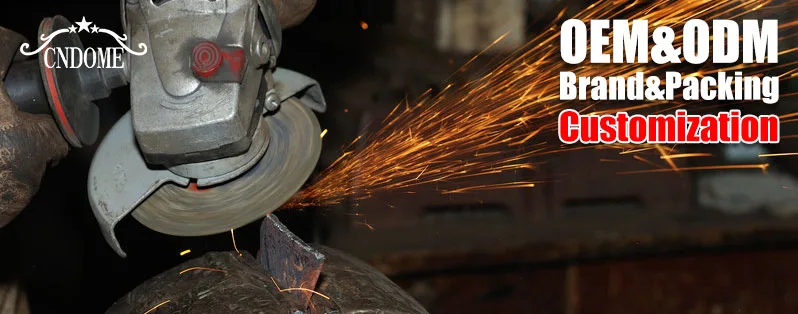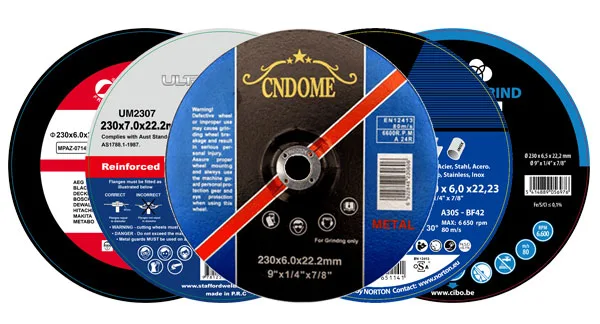Grinding wheels are indispensable tools in various industries, serving the purpose of shaping and finishing materials with precision. However, not all materials are ground with grinding wheels. Understanding the limitations is crucial to ensure safety, optimize performance, and extend the lifespan of the grinding tools. In this blog, we will explore the materials that cannot be ground with grinding wheels and the reasons behind these restrictions.
Materials Unsuitable for Grinding Wheels:
Non-Ferrous Metals:
Grinding wheels are typically designed for use with ferrous metals like steel and iron. Attempting to grind non-ferrous metals such as aluminum, brass, or copper with the same wheels can result in clogging and loading. These softer metals tend to create excess friction and may cause the wheel to overheat, leading to a loss in efficiency and a compromised surface finish.
Soft Materials:
Grinding wheels are not well-suited for materials with low hardness or softness, such as rubber or certain plastics. Soft materials can deform under the pressure of the grinding process, causing irregularities in the finished product and potentially damaging the grinding wheel.
Heat-Sensitive Materials:
Some materials are sensitive to heat and may undergo undesirable changes when subjected to the heat generated during grinding. For example, heat-sensitive plastics or certain alloys may experience thermal distortion, loss of hardness, or other alterations that affect their properties.
Brittle Materials:
Brittle materials like ceramics and certain glass types are prone to cracking and chipping during the grinding process. The high impact forces involved can lead to the formation of microcracks, compromising the integrity of the material.
Wood:
While grinding wheels are effective on hard materials, they are not suitable for woodworking applications. Wood tends to clog the abrasive surfaces, leading to a reduced cutting ability and an increased risk of overheating.
Non-Metallic Materials:
Grinding wheels are primarily designed for metalworking applications. Attempting to grind non-metallic materials like stone or concrete can wear down the abrasive grains too quickly, diminishing the wheel’s effectiveness and posing safety risks.
Reasons for Incompatibility:
Heat Generation:
Grinding generates heat, and some materials are sensitive to temperature changes. Excessive heat can alter the properties of certain materials, leading to unintended consequences.
Abrasive Resistance:
Materials with low resistance to abrasion can wear down the grinding wheel quickly. This not only reduces efficiency but also poses safety risks as the wheel becomes less stable.
Loading and Clogging:
Soft or sticky materials can clog the abrasive surfaces of the grinding wheel, reducing its cutting ability and overall effectiveness.
Conclusion:
Understanding the limitations of grinding wheels regarding certain materials is essential for maintaining safety, achieving optimal results, and prolonging the lifespan of the tools. While grinding is a versatile process, selecting the right abrasive wheel for specific materials is crucial to ensure efficiency and precision in various industrial applications. Always refer to the manufacturer’s guidelines and specifications for the appropriate use of grinding wheels on specific materials.


